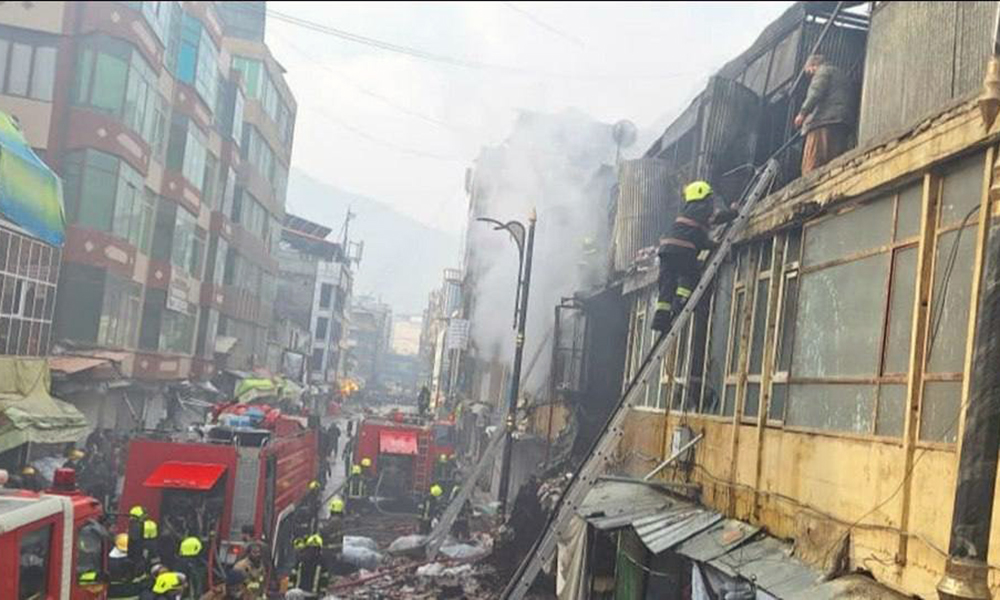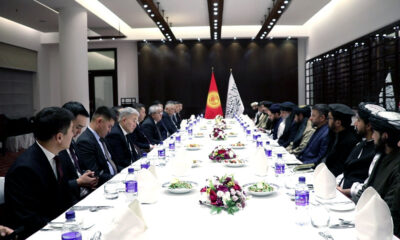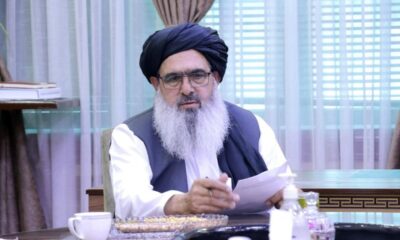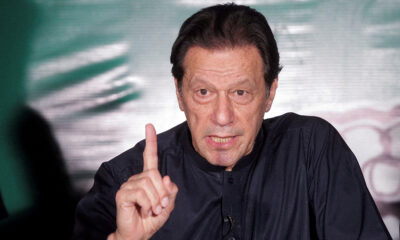Latest News
Iran says IEA considering holding Loya Jirga

The Islamic Emirate of Afghanistan (IEA) is considering convening a grand assembly of elders, known as a Loya Jigra, Iran’s special envoy has said.
“Loya Jirga is a traditional event where elders gather to resolve a crisis that cannot be resolved through ordinary means,” Hasan Kazemi Qumi, Iranian president’s special representative on Afghanistan, told Iran’s semi-official Mehr news agency.
“The Taliban (IEA) are considering it (Loya Jirga) and are talking to other sides for the return of political leaders to Kabul for dialogue,” he said.
“I hope it takes place and helps resolve the crisis in Afghanistan,” Qumi said.
He also expressed hope that Afghanistan will achieve security and economic stability and refugees return home.
The IEA has previously said that the government has no plans to convene a Loya Jirga.
Experts, however, say holding a Loya Jirga is needed to resolve the existing problems in Afghanistan.
“All Afghans want the holding of a real national Loya Jirga. It is the need of the hour. It will represent people’s will and will show unity of Afghans to Afghanistan and the international community,” said Shahzada Massoud, a political expert.
Latest News
Afghanistan signs 30-year deal for marble mining in Daikundi

The Ministry of Mines and Petroleum of Afghanistan has signed a 30-year agreement with a private company to extract marble in Daikundi province.
Under the contract, the company will invest AFN 283 million in exploring and mining marble at the “Mesh-Uliya” site, spanning 16.74 square kilometers in central Daikundi.
Hedayatullah Badri, Minister of Mines and Petroleum, stated that the marble will be processed domestically before being exported abroad. He added that the Mesh-Uliya project is expected to create around 200 jobs, and the company is committed to supporting local communities through social initiatives.
Economic experts highlight that such investments, especially those focusing on domestic processing, are crucial for job creation, boosting exports, and strengthening the national economy. Analysts further note that the project will improve local infrastructure, expand social services, and enhance the economic and social well-being of Daikundi residents.
Since the return of the Islamic Emirate to power, efforts to develop Afghanistan’s mining sector have intensified, with multiple contracts signed in areas including cement, copper, iron, and lapis lazuli, involving both domestic and international companies.
Latest News
Passenger bus veers off Salang Highway, leaving 5 dead, dozens injured
Latest News
Major fire in Mandawi Kabul market contained, extensive losses prevented
Local shopkeepers said the fire broke out around 4 a.m.

The Ministry of Interior reported that personnel from the General Directorate of Firefighting and Emergency Response successfully prevented the further spread of a fire at Mandawi market on Kabul early Sunday morning.
Abdul Mateen Qani, spokesperson for the ministry, said that the fire destroyed 10 storage facilities and 8 shops. He added that initial losses are estimated at around $700,000, but timely action by firefighting personnel saved property worth approximately $2.2 million.
Qani explained that the fire was caused by an electrical short circuit. He praised the rapid and effective containment operations, which prevented more extensive damage.
Local shopkeepers said the fire broke out around 4 a.m.
-

 International Sports5 days ago
International Sports5 days agoILT20: Abu Dhabi Knight Riders end Desert Vipers’ unbeaten run in dramatic one-run win
-

 Latest News3 days ago
Latest News3 days agoAfghan border forces prevent illegal entry of hundreds into Iran
-

 Latest News2 days ago
Latest News2 days agoPakistan summons Afghan diplomat over deadly attack in North Waziristan
-

 Business5 days ago
Business5 days agoMahirood Customs leads Iran’s exports to Afghanistan
-

 Latest News5 days ago
Latest News5 days agoAfghanistan, Kyrgyzstan discuss expanding trade and economic cooperation
-

 Latest News3 days ago
Latest News3 days agoJapan allocates nearly $20 million in humanitarian aid for Afghanistan
-

 Latest News2 days ago
Latest News2 days agoKarzai urges reopening of girls’ schools and universities for Afghanistan’s bright future
-

 Latest News2 days ago
Latest News2 days agoAfghan health minister calls for medical cooperation between Kabul and New Delhi

























